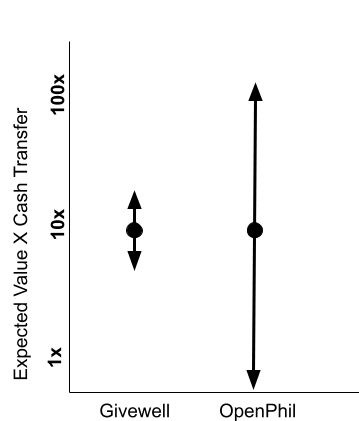crossposted on LessWrong
I'm interested in questions of the form, "I have a bit of metadata/structure to the question, but I know very little about the content of the question (or alternatively, I'm too worried about biases/hacks to how I think about the problem or what pieces of information to pay attention to). In those situations, what prior should I start with?"
I'm not sure if there is a more technical term than "low-information prior."
Some examples of what I found useful recently:
1. Laplace's Rule of Succession, for when the underlying mechanism is unknown.
2. Percentage of binary questions that resolves as "yes" on Metaculus. It turns out that of all binary (Yes-No) questions asked on the prediction platform Metaculus, ~29% of them resolved yes. This means that even if you know nothing about the content of a Metaculus question, a reasonable starting point for answering a randomly selected binary Metaculus question is 29%.
In both cases, obviously there are reasons to override the prior in both practice and theory (for example, you can arbitrarily add a "not" to all questions on Metaculus such that your prior is now 71%). However (I claim), having a decent prior is nonetheless useful in practice, even if it's theoretically unprincipled.
I'd be interested in seeing something like 5-10 examples of low-information priors as useful as the rule of succession or the Metaculus binary prior.




[I learned the following from Tom Davidson, as well as that this perspective goes back to at least Carnap. Note that all of this essentially is just an explanation of beta distributions.]
Laplace's Rule of Succession really is a special case of a more general family of rules. One useful way of describing the general family is as follows:
Recall that Laplace's Rule of Succession essentially describes a prior for Bernoulli experiments; i.e. a series of independent trials with a binary outcome of success or failure. E.g. every day we observe whether the sun rises ('success') or not ('failure') [and, perhaps wrongly, we assume that whether the sun rises on one day is independent from whether it rose on any other day].
The family of priors is as follows: We pretend that prior to any actual trials we've seen N_v "virtual trials", among which were M_v successes. Then at any point after having seen N_a actual trials with M_a successes, we adopt the maximum likelihood estimate for the success probability p of a single trial based on both virtual and actual observations. I.e.,
Laplace's Rule of Succession simply is the special case for N_v = 2 and M_v = 1. In particular, this means that before the first actual trial we expect it to succeed with probability 1/2. But Laplace's Rule isn't the only prior with that property! We'd also expect the first trial to succeed with probability 1/2 if we took, e.g., N_v = 42 and M_v = 21. The difference compared to Laplace's Rule would be that our estimate for p will move much slower in response to actual observations - intuitively we'll need 42 actual observations until they get the same weight as virtual observations, whereas for Laplace's Rule this happens after 2 actual observations.
And of course, we don't have to "start" with p = 1/2 either - by varying N_v and M_v we can set this to any value.